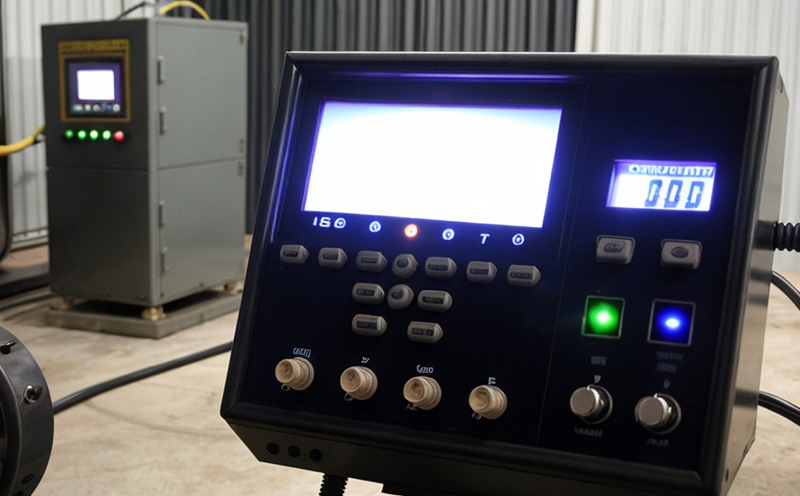Checking for shifts in calibration after exposure to high-energy environments
Ensuring Accuracy in High-Energy Environments The Importance of Checking for Shifts in Calibration
In todays fast-paced and competitive business landscape, accuracy and precision are more crucial than ever. Whether youre a researcher, engineer, or scientist, the consequences of equipment malfunction can be catastrophic not just financially but also from an operational standpoint. High-energy environments, such as those found in medical facilities, manufacturing plants, or scientific research laboratories, are particularly vulnerable to calibration drift due to their intense and potentially damaging conditions.
At Eurolab, we understand the importance of maintaining precise measurements, even in the face of extreme external factors. Our laboratory services focus on providing you with the confidence that your equipment is functioning within acceptable tolerances, ensuring compliance with regulatory requirements while safeguarding against potential hazards. One critical service our team offers is Checking for Shifts in Calibration after Exposure to High-Energy Environments.
What is Checking for Shifts in Calibration?
Checking for shifts in calibration refers to the meticulous process of verifying an instruments accuracy and precision after it has been exposed to extreme environmental conditions, such as high temperatures, radiation, or vibration. These environments can cause a devices calibration to drift away from its original specifications, leading to inaccurate readings that can compromise research integrity, patient safety, or product quality.
Why is Checking for Shifts in Calibration Essential?
Adopting a regular checking process for shifts in calibration after exposure to high-energy environments offers numerous advantages. Here are some of the key benefits
Compliance with Regulatory Requirements Regular checks ensure that your equipment adheres to strict regulatory standards, reducing the risk of costly fines or legal repercussions.
Enhanced Equipment Reliability Identifying and addressing potential issues before they escalate helps maintain reliable performance, decreasing downtime and increasing productivity.
Improved Research Integrity In research settings, accurate measurements are paramount. Our checks guarantee that your data is trustworthy and reliable, safeguarding against retractions or the need for duplicate experiments.
Increased Patient Safety For medical facilities, ensuring accurate readings is vital to providing quality patient care. Checking for shifts in calibration after high-energy exposure protects patients from potential harm caused by inaccurate diagnoses or treatments.
Better Decision-Making By verifying the accuracy of your measurements, you can make informed decisions with confidence, whether its about product design, manufacturing processes, or resource allocation.
How Does Eurolab Check for Shifts in Calibration?
Our team of experienced technicians and experts utilize state-of-the-art equipment to perform thorough checks on your devices. We adhere to a systematic approach that includes
Initial Assessment A comprehensive examination of the devices history, including its original calibration specifications, storage conditions, and any recent exposure to high-energy environments.
Calibration Verification Accurate measurements are taken using certified reference materials and standards to verify the devices performance against established tolerances.
Comparative Analysis Results from previous calibrations are compared with current data to identify any drift or shifts in accuracy.
Corrective Actions Recommendations are provided for adjustments, repairs, or replacement of affected components to restore optimal performance.
QA Section
Q How often should I have my equipment checked?
A Regular checks are essential, but the frequency depends on how frequently your device is exposed to high-energy environments and its operational history.
Q What types of devices require checking for shifts in calibration?
A Any instrument that measures physical properties, such as temperature, pressure, or radiation, should be checked regularly after exposure to high-energy conditions.
Q Can I perform the checks myself?
A While its possible to attempt self-inspection, our team has extensive knowledge and experience with various types of equipment. To ensure accurate results and compliance with regulatory requirements, we recommend outsourcing this task to Eurolab.
Conclusion
In environments where high-energy conditions prevail, equipment calibration is a continuous challenge. At Eurolab, we offer Checking for Shifts in Calibration as a critical service that protects your business from potential risks by ensuring the accuracy of your measurements. By partnering with us, you can enjoy the peace of mind that comes with knowing your equipment operates within optimal parameters, safeguarding research integrity, patient safety, and operational efficiency.
Dont let calibration drift compromise your operations or research projects. Trust Eurolab to deliver precise results and provide the confidence needed for informed decision-making. Contact us today to schedule a check-up for your high-energy-exposed equipment and discover how our services can elevate the reliability of your measurements.




